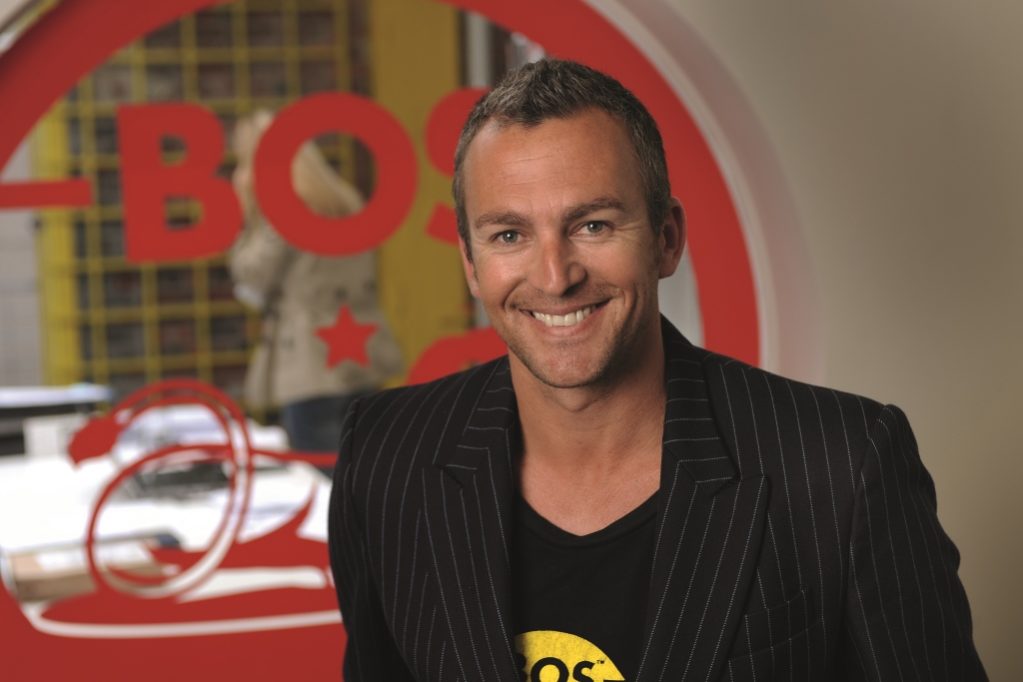BOS co-founders Grant Rushmere and Richard Bowsher don’t sweat the small stuff. They like to think big. When they launched BOS Brands in 2010, their ambition was to conquer the $70 billion global ice tea market. They are well on the way.
It’s not a modest goal. The two businessmen are taking on some of the world’s biggest beverage houses that currently dominate the market—Coca Cola, Unilever, Nestea, Lipton—with an ice tea based on Rooibos, South Africa’s indigenous herbal tea.

FBL-ENG-PR-MANUTD-STOKE
Their dream became possible when two major investors trusted their vision. Former Manchester United football manager, Sir Alex Ferguson, was the company’s first major backer, taking a 10% stake in BOS even before it launched the first product.
It was a lucky break. Rushmere, who is friends with the South African wife of Ferguson’s son, Mark, had met the famous football boss several times socially. When Rushmere showed him the BOS prospectus on a trip to London, Ferguson immediately showed interest.
“We have been benefiting from Sir Alex’s amazing leadership capability since then. He brings a great venture capitalist perspective to the company and helps with investor analysis as well as optimizing the business model and cash flow,” says Bowsher.
A year later, venture capital firm Invenfin—the Remgro Group’s investment arm, which is chaired and controlled by well-known South African billionaire Johann Rupert—invested another 20% in BOS.
Rupert, who founded Switzerland-based luxury goods company Richemont that owns top global labels, including Cartier, Van Cleef & Arpels and Montblanc, is the ideal partner to guide BOS in building its brand, says Rushmere.
“They are the ultimate godparents, if you like. They’ve gone out and done it and are very keen to help the next generation, without being pushy,” he says.
The fact that Invenfin approached them, and not the other way around, was a real coup for BOS.
“They are a big picture investor that is looking for global opportunities, headquartered in South Africa. And they have the track record and the war chest to back it,” says Bowsher.
Ferguson and Invenfin didn’t invest lightly. Their moves were carefully calculated.
The ice tea segment, which makes up 12% of the global soft drink market, is growing 8% annually and forecast to grow more than 40% over the next five years.
The idea to take on the global ice tea market with a Rooibos-based product came from Rushmere, who had already developed the Afro Coffee & Tea brand.
“Rooibos’ natural sweetness makes it the ideal carrier for fruit flavors while its healthy, healing properties are increasingly recognized locally and internationally,” he says.
Another unique selling point was to create an authentically African product: the Rooibos plant only grows in a specific region within South Africa and nowhere else in the world.

Richard Bowsher
“There is, for example, a major trend for Asian green teas globally because people want the authenticity. The trend is to move away from generic brands,” says Rushmere.
In 2009, when a friend introduced him to Bowsher, who was farming organic Rooibos in the Cederberg mountains, about 300 kilometers north of Cape Town, the two decided to team up.
Apart from organic tea leaves, Bowsher, who built up an international media company in San Francisco with offices in the US, Tokyo and Britain before returning to South Africa in 2000, brought serious business skills and global experience to the table.
Rushmere, meanwhile, knew the European market well, where he had marketed his Afro Coffee & Tea brand.
“We are quite used to beating Americans and Europeans at their game. We are not intimidated. We see Coca Cola, Unilever and Pepsi as direct competitors,” says Bowsher.
The two entrepreneurs certainly have chutzpah.
“When we launched the product, our goal was, from the start, to become a global beverages company. We have a distinct strategy and execution plan around how to do that,” Bowsher says.
In mid-2010, they went to market with a first range of BOS ice teas—five flavors—in South Africa. The beverage is organic and has no preservatives or colorants. Its contemporary branding made it stand out from other ice teas available.
“We want to show that healthy can be fun,” says Rushmere.
Within the first year, BOS distributed to over 1,200 outlets in South Africa, including major retailers Woolworths, Pick n Pay, Spar, Makro and Engen shops.
The next step was to launch different packs and sizes. BOS started selling a one-liter value pack in 2012, once they established a foothold in the retail environment, says Rushmere. In mid-2013, a re-sealable 500 milliliter plastic bottle was launched as an on-the-go convenience pack.
In November, BOS will take on the energy drink market by launching a Rooibos-based energy drink in three different flavors, taking on big names like Gatorade and Energade.
The global expansion is well under way too. Earlier this year, BOS started operations in Belgium and the Netherlands, as the first step of the company’s global expansion plan.
Although they are two geographically small countries, the move cannot be underestimated. The Benelux region is a $1 billion ice tea market where a person drinks on average ten liters of the beverage per year. That is massive compared to South Africa, where the average annual consumption per capita is below one liter.
“From there, our strategy is to expand further into Europe; to France, Italy, Germany and Spain, all massive ice tea markets,” says Rushmere.
“After that, we’ll tackle the world’s biggest ice tea markets, the United States, China and Japan.”
If all goes according to plan, South Africans will be able to cool down with a BOS ice tea when walking along the Great Wall of China in 2023.
